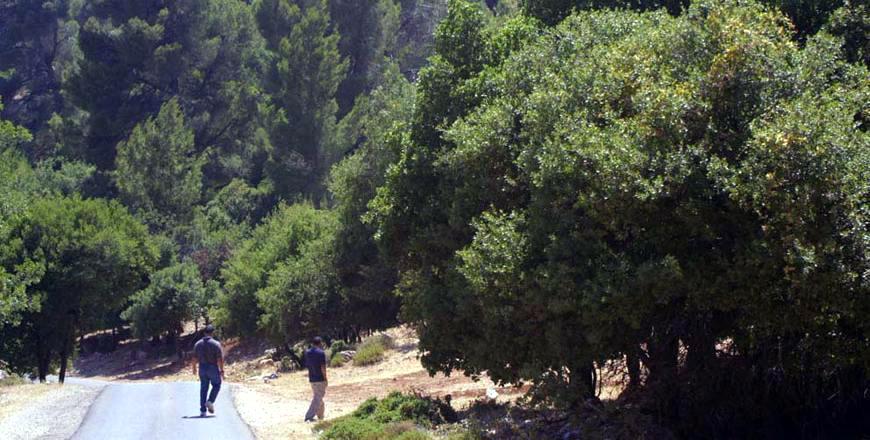- Local News
- Mon-2020-11-23 | 03:15 pm

The Jerash Agriculture Directorate has announced that it has tightened its measures against violations in forest reserves, a phenomenon that increases every year at the onset of winter.
Trees are usually cut down and logged for firewood for heating, however this year the situation might be "especially dangerous”, according to the directorate, as it is expected that "more people will resort to using forest wood instead of buying heating fuels, due to the economic hardships caused by the coronavirus pandemic”.
The directorate also noted that there are hundreds of tonnes of dry wood left by the forest fires that occurred in the summer, which have not been collected yet due to the pandemic that has hindered the directorate’s work and reduced its financial allocations.
Director of the Jerash Forest Directorate Fayez Harahsheh said in a statement that this year, the directorate expects to witness the "highest number of forest violations, as it is no secret that the economic conditions of the citizens have affected their ability to buy diesel or kerosene, as revealed by the decreased demand for these fuels”.
"However, this does not mean that citizens can resort to cutting down trees as forest cover is already at risk,” he added.
Hala Murad, the president of the Dibeen Association for Environmental Development, told The Jordan Times that the Kingdom’s forests are "not as rich, both in tree numbers and variety of biological life, as they used to be”.
However, Murad said that, while some citizens cut down trees for firewood to warm themselves and their families, most of the violations are carried out by those "looking to make extra money by selling logs to big fireplace shops or commercial chains”.
"The problem is that sometimes, the perpetrators get arrested, but the big stores or chains remain untouched as there is no direct involvement. This means that even if this one violator is arrested, there are hundreds of others who are willing to do the job for the money,” she added.
Harahsheh noted that the government has provided legal outlets for those looking to benefit from the dry wood left by this year’s wildfires.
As 2020 witnessed one of highest numbers of wildfires, standing at 48, there are approximately more than 770 tonnes of dry firewood available, of which only 270 tonnes have been sold to citizens, Harahsheh said.
"We have received over 1,000 requests for the remaining 500 tonnes, but the coronavirus pandemic has hindered our ability to employ more workers to collect the firewood,” said Harahsheh, noting that if collected, the firewood could "provide heating to hundreds of families and that the problem of cutting down trees would be dramatically reduced”.
Murad said she believes that the increase in the number of requests submitted to the Ministry of Agriculture is an "evidence of citizens’ awareness about the need to purchase firewood from reliable sources, the most important of which are the ministry and the authorised agencies”.
Meanwhile, Harahsheh stressed that the directorate has "intensified its patrolling, increased the number of its watchtowers and tightened penalties to limit violations”.
The directorate has also cooperated with security authorities to inspect vehicles and confiscate any firewood inside them, especially at the entrance and exit points of forests. Until now no forest violations have been recorded, he said.
"Our annual plans include new and more effective precautionary measures each year, as evident in the success of decreasing the number of forest violations by 50 per cent last year, with 95 cases compared with 470 three years ago,” added Harahsheh.
"We hope that the reason for the decline in violations is the emphasis placed by the Ministry of Agriculture cadres in cooperation with the concerned authorities on preventing any violation, whether that is cutting, overgrazing or arson. We also hope that the citizens realise that harming the environment means harming one of the Kingdom’s pillars of environmental security as well,” Murad concluded.









